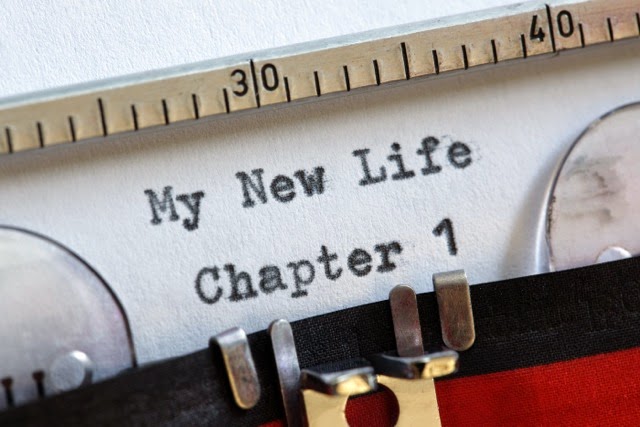This week we'll walk through some common sayings in agile and explore their meaning a bit.
Monday - The Wisdom of And
 |
Even if you are an expert, you'll benefit from hearing
and getting input from others. |
When I worked at BigVisible, one of their coach's conference themes was "The Wisdom of And." This is drawn from Jim Collins work when he talks about the wisdom of "and" and the tyranny of the "or". The point is that there are often more choices available to just either/or choices, sometimes called "sucker's choices" or "false polarity," if neither option in its entirety or alone gives everyone what they're wanting. For example, "Well, we can either go over budget to build X, or we can lose all our best customers to the competition." That's a fool's choice. There's something in the middle.
If a group is sitting around a table, the best option doesn't lie with one person. It more likely lies somewhere in the middle of the table. Even if you are an expert, you'll benefit from hearing and getting input from others.
To get more input from a quiet group, ask questions such as "Anything else on this to consider?" "Are there other options?" "Any unanswered questions?" "What are we overlooking?" "What assumptions does this depend on?" "Is there another approach?" "How could this fail?" "Let's get at least two options on the board for this issue."
And you can control difficult people by replying to their solution with, "I'm sure that's a great option, I just want to hear what others have to say." or "Yes, and I'd like to just gather additional information and input."
Homework: Practice replying to positions and opinions with "Yes, and…" instead of "Yes, but…"
Tuesday - Art of the Possible
We often think things are impossible, but in actuality are possible and likely take a lot of hard work and a long time.
For example, for many of you, running a marathon might seem impossible. It might be if it were this weekend, but if it were six months away, and you started getting up in the morning and lacing up the shoes...given enough time and effort, you could do it. And if you did, what a sesnse of accomplishment that would be. It's a big deal. That's why people put the sticker on the back of their cars with 26.2. They don't put stickers that say "I walked around the block today." That's no big deal.
Most anything important, that's of value, takes some investment of time and effort. And that journey is actually part of what changes you, grows your character, and gives you a story worth telling, a story that others want to hear.
Homework: Watch the amazing transformation of a man who commits to running the Boston marathon:
Wednesday - No one of us is as smart as all of us.
Scrum depends on team. If the team isn't all in, if they're not involved in estimating the work, collaborating with the Product Owner on what, why and options in the requirements, and if they're not committing to the work, then we are missing a lot of the magic. When it comes to ideas, options on approaches, the architecture and more, no one person has all the answers. No one person is as smart as everyone else put together. One person might have more knowledge in a particular area, but others can learn that, too. I've been amazed at how many times the new person on the team has had the best idea.
The same is true for us. On our own personal journey, on our own goals or challenges, we'll always benefit from hearing ideas from others, getting feedback, hearing their stories. We're built for community. Help yourself by getting connected in the local or online agile communities or coaching circles.
Homework: Do a quick search for local meetings or meet-ups for agile, Scrum, project or product managers, lean start-up or business sector you're in, and do the same for groups on LinkedIn, Yahoo, Facebook and other social sites. See anything interesting?
Thursday - Create your own Reality
 |
We need to empower our teams, our team members, and
ourselves that we can create the reality we want |
When I worked at Rally, this was one of their core values and sayings. And they lived it. If you felt that you needed something to do your job, if you wanted to grow into another role, they supported you in creating that reality.
I see my wife doing something similar with our two younger kids. When they say, "I'm thirsty," she replies, "So what are you going to do about that?" When they say they can't get ready because they don't have their shoes, she answers with "You can solve that problem."
We need to empower our teams, team members and ourselves that we can create the reality we want, we can solve our problems. I'm often met with the opposite in companies, a response of "Management won't let us do ____," but when I ask if they have actually asked for it, it's usually "No, but they know this is a problem." A particular training exercise I do highlights this. I do the ball point game, and the vast majority of the time, the participants don't move around to where the spacing works best for them. They just accept the circumstances or constraints without even asking me.
Homework - Think of the team, a team member, or yourself, and ask "What if..." and see what comes.
Video Fridays - What's the simplest thing that will work?
Breaking down life into what moves it forward today, not what's the best, comprehensive solution. A little like the debt snowball or weighted short job first.
To look at the entirety of the mountain to be climbed may seem overwhelming, but there is truth both in the saying that the journey of a 1,000 miles begins with one step and that the joy is in the journey.
About the big challenge or goal in front of you, what's one part of it that you can do today? Even better, what's something on it that you can do before noon? You might say that that one thing isn't the most important or highest priority. True, but also perhaps not true. It is a priority in the sense that you getting a "less important" task done actually gets the motivation and confidence going to tackle, and succeed, at the big thing.
Often our risk aversion, all the unknowns, take us out of the game of tackling big and challenging goals. But the very fact that the goals are big and scary are what make them worth doing, noble even. And through that challenge of tackling what is too much for us, we are transformed from someone who could not, before, into someone who can, afterwards.
Homework: Watch the amazing transformation of a man with a broken neck learning to walk again.
Weekend Warrior
Check out
the story at the beginning of Habit. Read up on
Jim Collins "Big Hairy Audacious Goals" and
Dave Ramsey's Debt Snowball.

